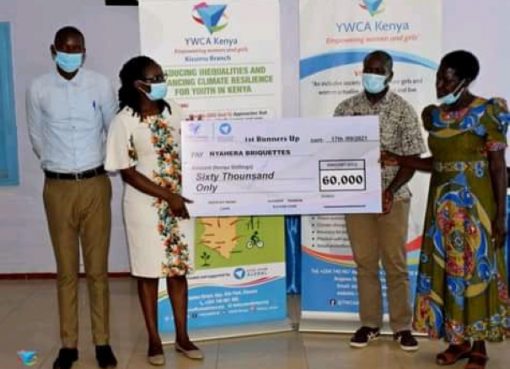Various Organisations in Kenya are keenly taking a lead in supporting climate mitigation measures in response to climate change caused by carbon emissions.
Tree planting is one of the approaches to help in the absorption of carbon dioxide from the atmosphere, with the Kenya Government targeting to plant 15 billion trees by 2032.
One tree, according to Seedballs Kenya, can absorb up to 21 kilograms of carbon dioxide per year and remove one ton of the gas from the atmosphere by the time it reaches 40 years old.
The Kenya Commercial Bank (KCB), Cooperative Bank of Kenya (Coop), Ministries and State Departments, and World Rally Championships-Safari Rally Kenya have adopted hectares of land at Kakamega Forest to plant and help raise trees in partnership with the Kakamega Forest Heritage Foundation led by the Kenya Forest Service (KFS) and Kenya Forestry Research Institute (KEFRI).
The 748 Air Services, which provides humanitarian aid to eight countries in Africa, is the latest to announce plans to monitor its carbon emissions into the atmosphere and devise ways to offset them.
The Airline’s Environmental Manager George Oduor, said they are taking responsibility as their planes fly at almost 20 000 feet above ground, emitting carbon in the process.
“You can imagine the level of emissions into the sky. We understand the danger of the environmental damage that we are causing, and we cannot just sit back and watch,” he said.
“What we are doing as a company is tracking all the emissions we release from our aircrafts, then at the end of the year we calculate what we are emitting, then partner with interested parties like the Kenya Forest Service and Kakamega Forest Heritage Foundation to find ways to offset,” he disclosed.
The airline was among the companies in Africa that participated in the Smart Fuel Reduction Project under the United Nations, with a commitment to continue partnering with UN agencies.
Climate mitigation cannot be done solely through tree planting; other effective ways include using clean energy sources, eco-friendly practices, and fuel that releases less carbon into the atmosphere.
In November 2020, KCB Bank received Global Climate Fund (GCF) accreditation to fund green projects.
According to the bank’s Western Regional Sales Manager, Sakwa Daniel, the bank will only finance projects meant to conserve the environment and reject those that might aggravate climate change.
“Right now, when you come to the bank and you want to borrow money, we look at the project that you are doing. If it is a project that is going to affect the environment, we will not go ahead and fund it. For instance, you want money to fell trees to produce charcoal, or you are looking for finances to construct a wetland,” he explained.
The bank, together with Equity Bank, has separately entered into partnerships with institutions of learning to help them migrate from using wood as fuel to clean energy alternatives such as Liquefied Petroleum Gas (LPG).
Similarly, a local company, Powersport Pelletizers, is piloting a project with schools in Kakamega to install Jikos, which use pellets as fuel instead of firewood and charcoal.
Pellets are produced from sugarcane bagasse, which is waste from sugar factories. According to the CEO of the company, Alfonso Acebal, the pellets are smokeless. The company produces 100 tonnes of pellets from about 200 tonnes of sugarcane bagasse.
Households in rural areas of Kabras are embracing the pellet jiko, which uses pellets as fuel while at the same time producing energy to power electrical appliances such as radios, phones, and light bulbs while cooking.
Sugar factories produce tons of sugarcane bagasse, which is normally dumped as waste. Sometimes the sugarcane bagasse left in heaps catches fire, emitting methane into the atmosphere.
“So we are trying to consume the sugarcane bagasse waste to get rid of it from the environment and make affordable fuel for home use. By doing so, we shall be conserving the environment by minimizing the cutting down of trees and also controlling the emission of carbon into the atmosphere since the pellets are smokeless,” he noted.
In 2019, Equity Bank celebrated its 35 years of existence, and a commitment was made to plant 1 million trees every year for the next 35 years.
The Co-operative Bank, through its Environmental, Social, and Governance (ESG) Agenda, has also adopted 5 acres of land at Kakamega Forest to plant trees every year.
Local partners have also come up with innovative ways to reduce carbon emissions by developing low-carbon, smokeless jikos and supplying solar kits as alternative, clean sources of energy affordable to rural communities.
Eco2Librium, a social enterprise company in Kakamega, is supporting local communities with solar kits to produce light in their homes and for cooking. It also establishes energy-saving cook stoves that use less firewood and also produces briquettes.
By Moses Wekesa




